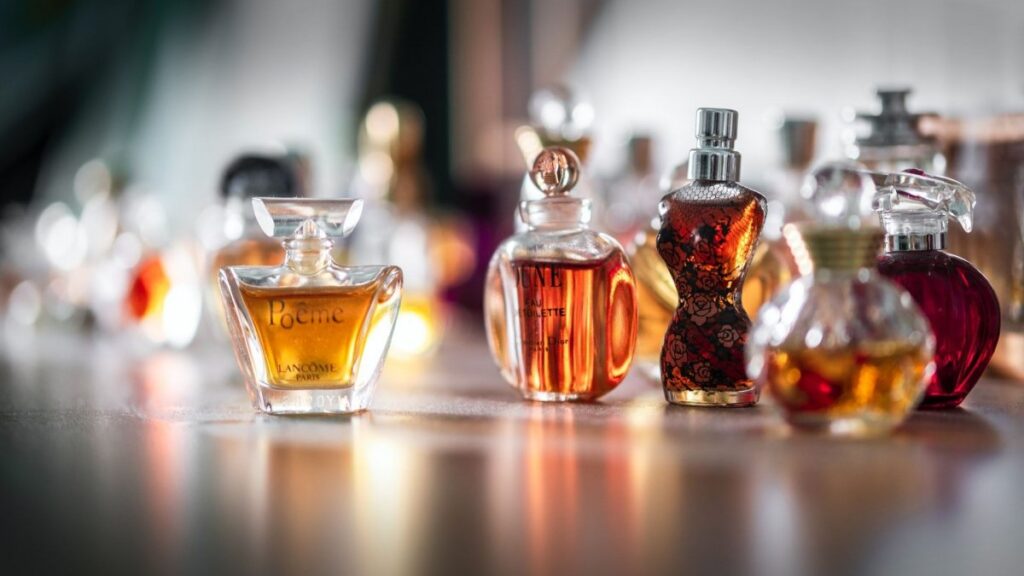
Perfume is more than just a fragrance — it’s an extension of personality, a mark of elegance, and often, a memorable impression. The global perfume industry has seen a significant rise in demand, and with that growth has come an influx of imitation products. While some consumers are tempted by lower prices, the true essence and quality of authentic perfumes cannot be matched by counterfeits. Understanding the difference between authentic perfumes and their imitations is crucial for making informed choices and ensuring you’re investing in quality and safety.
The Essence of Authentic Perfumes
Authentic perfumes are crafted with care, precision, and high-quality ingredients. Created by renowned perfume houses and expert perfumers, they involve a complex process of sourcing rare ingredients, blending notes harmoniously, and aging the formula to perfection. Each bottle is a result of years of research, testing, and refinement.
These perfumes are made using natural essential oils, absolutes, and aroma chemicals that offer depth and long-lasting wear. The notes unfold gradually — from top, middle, to base — creating a layered olfactory journey. This depth and evolution over time are signatures of authenticity.
Moreover, authentic perfumes are thoroughly tested for skin compatibility and safety. They follow stringent regulations and quality control standards, ensuring the product you use is safe for everyday wear and suitable even for sensitive skin types.
The Rise of Imitation Perfumes
Imitation perfumes, often labeled as “inspired by” or “duplicates,” are mass-produced with the goal of mimicking the scent of popular high-end fragrances. These products are typically sold at a fraction of the price of authentic ones, which makes them appealing to budget-conscious consumers. However, what many don’t realize is that the cost-cutting comes with major compromises in quality, safety, and performance.
Most imitation fragrances use synthetic ingredients of lower grade, and their scent profile is usually simplistic or overly concentrated to make an immediate impression. However, they often lack the subtlety, elegance, and lasting power of the original fragrance. These scents may smell similar at first but tend to fade quickly or change unpleasantly over time.
Additionally, because counterfeit products do not adhere to industry standards or regulations, there’s a higher risk of skin irritation, allergic reactions, or even respiratory issues. In some cases, harmful chemicals not approved for cosmetic use have been found in imitation perfumes.
Packaging: The First Clue
One of the easiest ways to identify an authentic perfume is by examining its packaging. Original perfumes come in high-quality boxes with clear labeling, precise fonts, and seamless wrapping. The bottles are made with care, using premium materials, and display consistent branding. Every detail — from the logo to the cap fit — is perfected.
Imitation perfumes, on the other hand, often have discrepancies in spelling, design, or colors. The boxes may appear flimsy, and the printing quality is usually inferior. Bottles may leak, feel light, or have inconsistencies in design. These subtle but telling signs can help distinguish between genuine and fake products.
Price and Purchase Channels Matter
Price is a strong indicator of authenticity. Authentic perfumes are expensive because of their ingredients, manufacturing process, and brand value. If a luxury fragrance is being sold at a steep discount with no clear explanation, it’s likely not authentic.
Where you purchase the perfume also plays a significant role. Always buy from authorized retailers, department stores, or the official brand website. Online marketplaces may offer deals, but unless the seller is verified and reputable, you’re risking the possibility of buying an imitation.
Longevity and Sillage: The Real Test
Another way to tell the difference between authentic perfumes and imitations is by how long the scent lasts and how it projects. Authentic perfumes are designed to evolve and stay with you for hours — often lingering on clothes or skin for an entire day. They have a balance of top, middle, and base notes that change subtly with your body chemistry.
Imitations generally don’t offer this experience. Their scent may be overly strong at first but quickly fades within a couple of hours, leaving little to no trace. They also tend to smell the same from start to finish, lacking the complexity and refinement of real fragrances.
Safety Concerns with Imitation Perfumes
When it comes to personal care, safety should never be compromised. Authentic perfumes undergo dermatological testing and comply with strict safety regulations. They use high-quality, skin-friendly ingredients, ensuring that allergic reactions or irritations are minimal.
In contrast, imitations often contain unregulated substances and synthetic fillers. Some have been found to include alcohols, phthalates, and other dangerous compounds that can lead to rashes, headaches, or even long-term health issues. The absence of transparency in their ingredient list is a major red flag.
Emotional and Cultural Value
Perfumes are also tied to emotions, memories, and personal identity. A scent can remind you of someone special, a place, or a moment in time. When you choose an authentic perfume, you are investing in that emotional value — a fragrance that becomes a part of your story.
Imitations might temporarily replicate the smell, but they cannot capture the soul of a true fragrance. The artistry, heritage, and innovation behind a genuine perfume make it irreplaceable. Many perfume houses also tie their products to history, art, or fashion, adding cultural depth to every bottle.
Environmental and Ethical Considerations
Authentic perfume brands are increasingly aware of their environmental and social responsibilities. They invest in sustainable sourcing, cruelty-free testing, and eco-friendly packaging. By buying authentic perfumes, you’re supporting ethical practices and the livelihoods of communities involved in sourcing ingredients like sandalwood, rose, and oud.
Counterfeit perfume producers rarely follow such principles. Their operations are often illegal, unregulated, and exploitative. Supporting them not only compromises your own health and satisfaction but also fuels unethical practices and environmental harm.
How to Protect Yourself as a Buyer
To ensure you’re buying an authentic product, here are a few key tips:
- Always research the seller before making a purchase.
- Compare the product with one from an authorized store, especially the packaging and bottle.
- Check the barcode and batch number — authentic products typically have traceable information.
- Be cautious of “tester” bottles sold in suspicious packaging.
- Trust your instincts. If something seems off — from the scent to the price — it probably is.
The Final Verdict
While the allure of saving money can be tempting, choosing an imitation perfume over an authentic one often leads to disappointment and potential health risks. Authentic perfumes offer more than just fragrance — they deliver artistry, quality, safety, and emotional connection. When you invest in the real deal, you’re paying for expertise, heritage, and an experience that no counterfeit can replicate.



